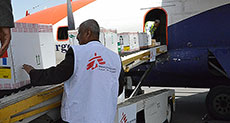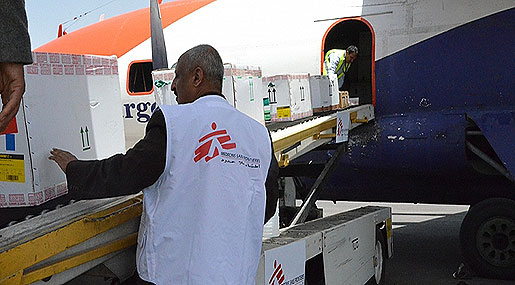
MSF: Yemen Crisis ’Beyond Aid System’s Ability to Cope’

Local Editor
An international medical charity said that local medical teams and aid agencies in Yemen were overwhelmed by the scale of the crisis there and the strain of keeping health services going is taking a huge toll.

According to the United Nations, the health care system is on the verge of collapse, in a country where 21.1 million people - 80 percent of the population - urgently need aid, and there is a constant threat of disease outbreaks.
Though local medical teams are working round the clock, they lack drugs and other medical supplies, as well as fuel to run their generators. Several hospitals had been forced to close.
"The situation is way beyond our ability to face [it], and it's way bigger than what the international aid system is able to cope with," Medecins Sans Frontieres' [MSF] outgoing head of mission in Yemen, Andre Heller-Perache, said.
"The scale of the crisis is growing, and as time goes on it will continue to grow," he added.
Furthermore, a Saudi-led aggression had been carrying out air raids in Yemen for almost three months to try to restore exiled President Abd-Rabbu Mansour Hadi and repel the Houthis.
The alliance had also maintained a blockade on imports of fuel, food and medicine, in a bid to cut off arms supplies to the Houthi forces.
Accordingly, the death toll had soared since the fighting escalated in March. At least 279 children had been killed and 402 injured in the past 10 weeks - four times the number reported in the whole of 2014, the UN Children's Fund [UNICEF] said on Tuesday.
United Nations chief Ban Ki-moon called for a two-week humanitarian ceasefire when he opened peace talks on Monday, to allow life-saving supplies into the country.
"There is this constant weight everywhere with everybody ... There's this malaise that permeates every corner of the country right now," Heller-Perache said.
Despite the difficulties, Heller-Perache saw local politicians, officials, business people and regional philanthropists working together.
Consequently, many private hospitals were now treating trauma patients free of charge, civilians and combatants alike, he added.
Source: News Agencies, Edited by website team
Comments
- Related News



